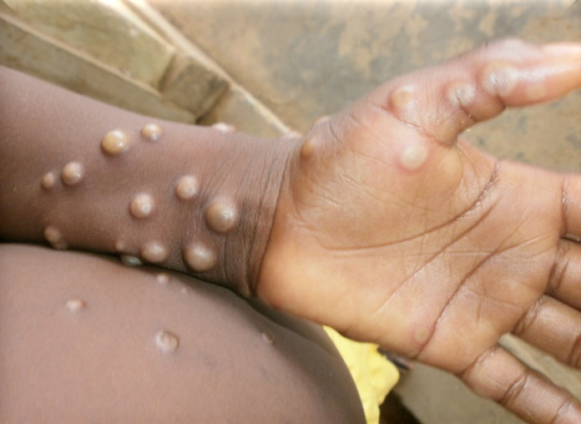Ghana has confirmed 84 cases of Monkeypox diseases as of September 6, 2022, with Greater Accra Region recording the highest number for both suspected (191) and confirmed (51) cases.
The country has also recorded 535 suspected cases, spreading across 38 districts, with four deaths – two deaths in Upper East and one death each in Greater Accra and Central Regions.
Dr. Henry Nagai, the Chief of Party and Public Health Physician, JSI Research and Training Institute, disclosed this when he spoke on Ghana’s perspective, at a free webinar (online) session on emerging viral infections and diseases with focus on the Monkeypox virus.
The JSI is collaborating with the Ghana Health Service (GHS) to implement the Global VAX Project being funded by the USAID under its strengthening the Care Continuum Project in parts of the country.
World Health Organisation’s (WHO) Regional Office for Africa organised the four-hour webinar, which among other objectives, sought to support the continental response by advocating proactive measures from African leadership to overcome the Monkeypox disease.
Under the Global VAX Project, the JSI and its implementing partners, would specifically be leveraging its existing network to mobilize people aged 15 years and above, pregnant women, people living with HIV, people with disabilities, and migrant population to access COVID-19 vaccines in the Western, Western North and Ahafo Regions.
In a breakdown, Dr. Nagai explained that 51 cases of the Monkeypox disease were recorded among males, constituting 60.7 per cent, saying the national case fatality rate also stood at 4.8 per cent.
So far, Bono region has recorded 16 suspected cases, Ahafo region (nine) suspected cases, Ashanti region (69) suspected cases, Bono East region (15) suspected cases, Central region (15) suspected cases, Eastern region (48) suspected cases and North-East region (four) suspected cases.
Northern region has recorded 24 suspected cases, Oti region (seven), Savannah region (seven), Upper East region (43), Upper West region (25), Volta Region (18), Western Region (11) and Western North region (3) suspected cases.
Dr Nagai said “some communities feel the Monkeypox is derogatory” and called on the WHO to consider changing the name of the disease to stem stigmatization and discrimination.
“WHO must listen, work hard and change the name of the disease now”, he stated, and lauded the contributions of the GHS and its partners for the support towards the fight against Monkeypox in the country.
Latest Stories
-
World Vision’s THRIVE 2030 Project to empower over 800,000 farmers across Ghana
11 minutes -
‘I was for Brexit, we needed to move away from bureaucracy’ – Baroness Foster
17 minutes -
Prioritise national interest over personal allegiances – Dr Rasheed tells Minority MPs
31 minutes -
Amerado teams up with JZyNO for Afro-fusion song ‘Asor’
43 minutes -
Trent Alexander-Arnold joins Real Madrid
50 minutes -
Camidoh bounces back with ‘Ayekoo’ and ‘Your Ghost’ ahead of new EP release
50 minutes -
9 rescued, 1 dead in fatal collision on Cape Coast–Takoradi highway
51 minutes -
WAFCON 2024: Ghana to open campaign on July 7 against defending champions South Africa
1 hour -
Elikplim Akurugu marks menstrual Hygiene Day with Schoolgirls in Dome-Kwabenya
1 hour -
Academic City University wins CIB’s maiden National Banking and Ethics Challenge by narrow margin
1 hour -
Briphildon Foundation supports 2025 BECE candidates at Dzorwulu JHS
1 hour -
Sulley Muntari roots for ‘mature’ Inter to win UCL trophy
1 hour -
Black Queens hold final training session ahead of first Cote d’Ivoire friendly
2 hours -
AC Milan announce Massimiliano Allegri as new head coach
2 hours -
2025 Unity Cup: Ibrahim Sulemana joins Black Stars squad for final game
2 hours

